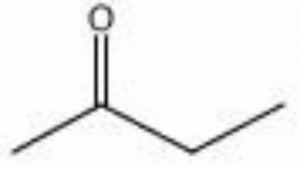Difference between revisions of "Methyl ethyl ketone"
m (Text replace - "== Authority ==" to "== Sources Checked for Data in Record ==") |
m (Text replace - "\[http:\/\/cameo\.mfa\.org\/materials\/fullrecord\.asp\?name=([^\s]+)\s(.*)\]" to " $2") |
||
| Line 1: | Line 1: | ||
== Description == | == Description == | ||
| − | A colorless liquid [ | + | A colorless liquid |
| + | [[solvent|solvent]] with an acetone-like odor. Methyl ethyl ketone, or MEK, is used as a solvent for | ||
| + | [[cellulose%20nitrate|cellulose nitrate]] lacquers, | ||
| + | [[vinyl%20resin|vinyl]] films, | ||
| + | [[acrylic%20resin|acrylic]] coatings, | ||
| + | [[ink|inks]], and | ||
| + | [[alkyd%20resin|alkyd]] ( | ||
| + | [[Glyptal|Glyptal]]) resins. It is also used as a component in | ||
| + | [[paint%20remover|paint removers]] and dry cleaning fluids. MEK does not dissolve | ||
| + | [[cellulose%20acetate|cellulose acetate]] or most | ||
| + | [[wax|waxes]]. | ||
== Synonyms and Related Terms == | == Synonyms and Related Terms == | ||
Revision as of 13:33, 9 May 2016
Description
A colorless liquid Solvent with an acetone-like odor. Methyl ethyl ketone, or MEK, is used as a solvent for Cellulose nitrate lacquers, vinyl films, acrylic coatings, inks, and alkyd ( Glyptal) resins. It is also used as a component in paint removers and dry cleaning fluids. MEK does not dissolve Cellulose acetate or most waxes.
Synonyms and Related Terms
2-butanone; MEK; ethyl methyl ketone; ethylmethyl ketone; 2-oxobutane; methyl acetone; methylethyl ketone
Other Properties
Miscible with water, ethanol, ether, benzene and oils.
| Composition | CH3COCH2CH3 |
|---|---|
| CAS | 78-93-3 |
| Melting Point | -86.4 |
| Density | 0.805 |
| Molecular Weight | mol. wt.= 72.12 |
| Refractive Index | 1.379 |
| Boiling Point | 79.6 |
Hazards and Safety
Flammable. Flash point = -9C Dangerous fire risk. Explosive in limits air 2-10%. Toxic by inhalation. Skin contact causes dermatitis. Ingestion causes vomiting and abdominal pain.
LINK: International Chemical Safety Card
Comparisons
Sources Checked for Data in Record
- R. J. Gettens, G.L. Stout, Painting Materials, A Short Encyclopaedia, Dover Publications, New York, 1966 Comment: acts well on cellulose acetate
- Reed Kay, The Painter's Guide To Studio Methods and Materials, Prentice-Hall, Inc., Englewood Cliffs, NJ, 1983
- Ralph Mayer, A Dictionary of Art Terms and Techniques, Harper and Row Publishers, New York, 1969 (also 1945 printing)
- Richard S. Lewis, Hawley's Condensed Chemical Dictionary, Van Nostrand Reinhold, New York, 10th ed., 1993 Comment: does not dissolve cellulose acetate and most waxes
- Michael McCann, Artist Beware, Watson-Guptill Publications, New York City, 1979
- Random House, Webster's Encyclopedic Unabridged Dictionary of the English Language, Grammercy Book, New York, 1997
- The Merck Index, Martha Windholz (ed.), Merck Research Labs, Rahway NJ, 10th edition, 1983 Comment: entry 6149; ref. index=1.379
- The American Heritage Dictionary or Encarta, via Microsoft Bookshelf 98, Microsoft Corp., 1998
- CRC Handbook of Chemistry and Physics, Robert Weast (ed.), CRC Press, Boca Raton, Florida, v. 61, 1980 Comment: ref. index=1.377
